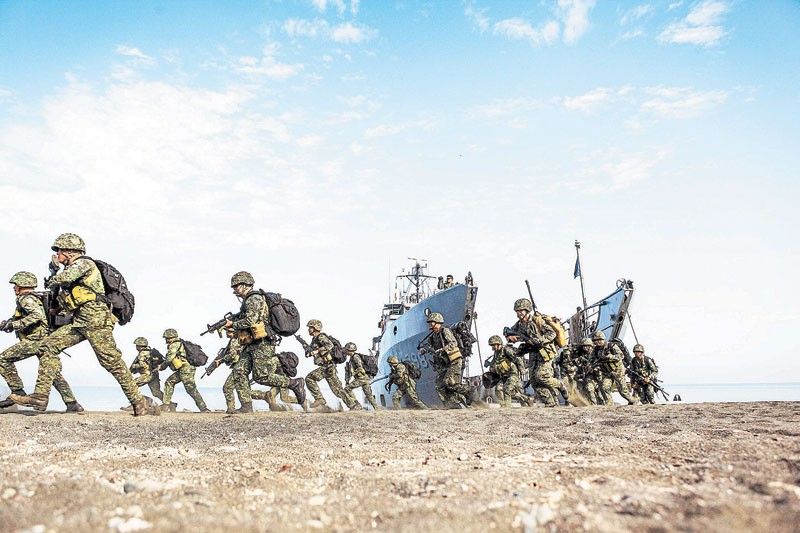EDCA not being used to interfere in China-Taiwan conflict, says DND

MANILA, Philippines — The Department of National Defense took exception to a recent statement of Chinese Ambassador to the Philippines Huang Xilian, with the latter accusing the four new Enhanced Defense Cooperation Agreement (EDCA) sites as American tools of interference to Beijing's internal affairs with Taipei.
Huang last Friday said that the US intends to take advantage of the new sites to interfere in the situation across the Taiwan Strait to "serve its geopolitical goals" and advance its "anti-China agenda at the expense of peace and development of the Philippines and the region at large."
"Amid the tensions in the Cross Straits, however, the department deems it prudent to prepare for any contingencies to ensure the safety of Filipinos overseas, especially those based in Taiwan," said defense spokesperson Arsenio Andalong in a statement on Saturday.
"In the midst of the complex regional security landscape, the DND seeks to improve the Philippines' defense capabilities through all the means available to us," he added.
Malacañang earlier this month named the following areas as new EDCA locations, Philippine military bases which can be utilized by the Americans to set up military facilities: Camilo Osias Naval Base in Sta Ana, Cagayan; Lal-lo Airport in Lal-lo, Cagayan; Camp Melchor dela Cruz in Gamu, Isabela and Balabac Island in Palawan.
China recently launched military drills around Taiwan, which was considered as a "stern warning" to the Taipei government following a meeting with its president and the US House speaker.
Beijing has long insisted on its "One China policy," stating that the People's Republic of China is the sole legitimate government of China, and that Taiwan is nothing but a part of it.
The Philippines, while having strong political ties with America, holds the same position of a One China policy. President Ferdinand Marcos Jr. maintains a close friendship with Chinese President Xi Jinping amid Beijing's continued encroachments in the West Philippine Sea.
"The implementation of EDCA is not directed against any country and is in line with our efforts to modernize our alliance and enable collective defense and peace, promote our national interest, protect our national sovereignty, ensure the livelihood and welfare of our fisherfolk and communities, and enhance our capability to respond to emergencies and disasters, as well as provide humanitarian assistance," Andolong said.
"The Philippines observes the One China Policy and maintains the ASEAN principle of non-interference in approaching regional issues. We reiterate that our primordial concern in Taiwan is the safety and wellbeing of the Filipinos living and working on the island."
Taiwan to this day officially calls itself as "Republic of China" even after the Chinese Civil War of the 1940s, a war which led to the socialist control of mainland China.
The DND reiterates its appeal to all concerned parties and states to "adhere to the rule of law and diplomacy" in managing differences.
Progressive activists have long criticized EDCA sites as "de facto US military bases" aimed at strengthening America's political hold in the Philippines. They contend that such policy runs counter to the interest of a sovereign nation. — with reports from Kaycee Valmonte
- Latest
- Trending

































